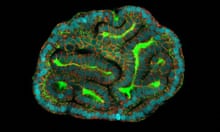People with a low sex drive could benefit from injections of a hormone called kisspeptin, according to clinical trials that found the shots can boost sexual responses.
The trials are the first to show the hormone can increase activity in brain regions linked to arousal and attraction in men and women who are distressed by their low libidos.
Beyond increasing sex-related brain activity, researchers said some women who received the hormone reported feeling “more sexy”, while men had improved “happiness about sex” and increased “penile tumescence” when watching an erotic film as part of the study.
One 44-year-old man on the trial, who said he had struggled to maintain relationships because his sexual appetite was so low, went on to have a son after his partner conceived in the same week he received the hormone. “I had the best possible outcome as a result of the trial,” he said.
Kisspeptin is a natural hormone that stimulates the release of other reproductive hormones in the body. Previous studies have shown that shots of kisspeptin can enhance how people with healthy libidos react to sexual stimuli and boost activity in parts of the brain involved in sexual attraction.
In two separate trials published in Jama Network Open, researchers led by Prof Waljit Dhillo and Dr Alexander Comninos, both consultant endocrinologists at Imperial College London, investigated the effects of kisspeptin injections in 32 women and 32 men with hypoactive sexual desire disorder (HSDD). The condition, which is defined by low sexual desire that is distressing to the individual, affects about 10% of women and 8% of men.
Brain scans from the trial participants suggest that the hormone can dampen down hyperactivity in regions linked to HSDD while boosting activity in key sexual regions of the brain. An additional measurement of the males found that penile rigidity, measured as they watched an erotic video as part of the trial, increased up to 56% compared with a placebo.
“The predominant theory in HSDD suggests that there is excess self-monitoring and introspection, for example, how am I performing, how do I look, what does my partner think, which blunts downstream sexual desire and arousal,” said Comninos. “In these studies we have shown that kisspeptin may be able to address this imbalance and promote sexual pathways in both women and men distressed by low sexual desire.”
Given the apparent benefits of kisspeptin and the lack of reported side-effects, the researchers believe the hormone is ripe to be developed as a treatment for HSDD. “Collectively, the results suggest that kisspeptin may offer a safe and much-needed treatment for HSDD that affects millions of people around the world,” Dhillo said.










